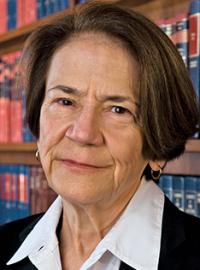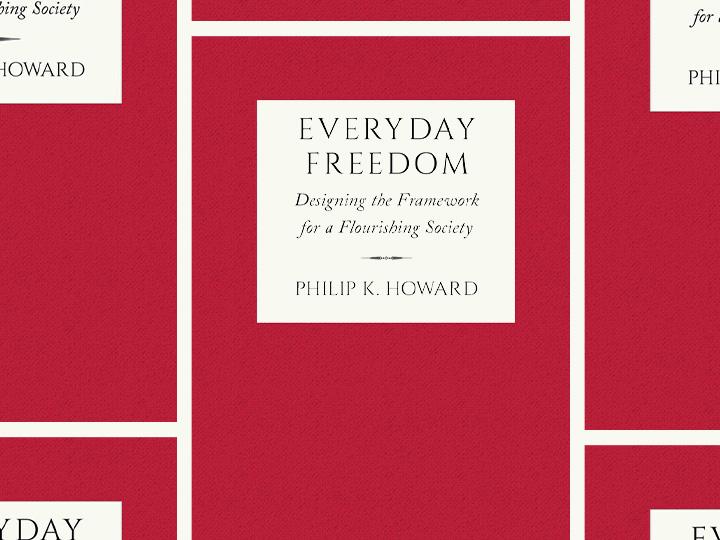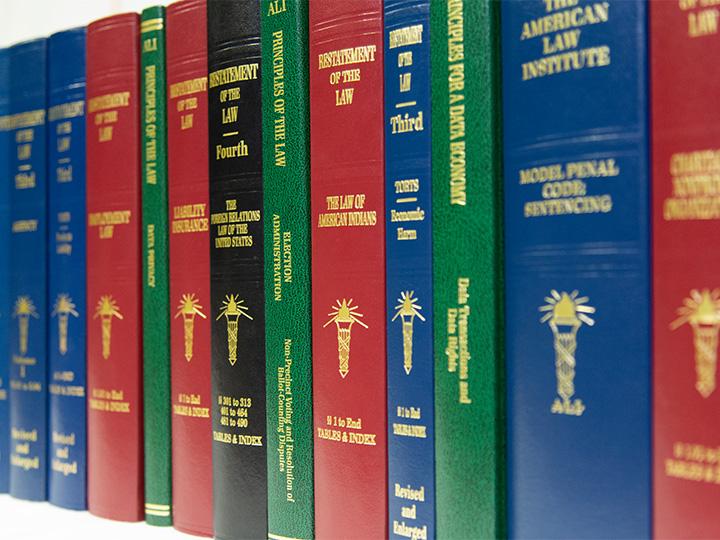Children and the Law: Protecting the Vulnerable in a Time of Crisis
The treatment of the children in two distinct areas of the law – child welfare and juvenile justice – is fraught with difficulty even under the best of circumstances. But with the onslaught of the COVID pandemic, the regular challenges and the need to protect children have only been compounded.
In this episode of Reasonably Speaking, juvenile justice scholar and Chief Reporter of the Restatement of the Law, Children and the Law, Elizabeth Scott guides our Children and the Law-exclusive panel through a series of discussions centering on child advocacy and juvenile law during a pandemic. The panel explores how the law defines parental authority, what rights a child has in custody, how lawyers can best represent a child in the system during a pandemic, and more.

Kristin Nicole Henning
Kristin Nicole Henning is The Blume Professor of Law, Special Advisor to the Dean on Community and Justice, and Director of the Juvenile Justice Clinic and Initiative at Georgetown University Law Center. She serves as an Adviser for The American Law Institute’s Restatement of the Law, Children and the Law.
Kris joined the faculty of the Georgetown Law Center in 1995 as a Stuart-Stiller Fellow in the Criminal and Juvenile Justice Clinics. As a Fellow she represented adults and children in the D.C. Superior Court, while supervising law students in the Juvenile Justice Clinic. In 1997, Kris joined the staff of the Public Defender Service (PDS) for the District of Columbia where she continued to represent clients and helped to organize a Juvenile Unit designed to meet the multi-disciplinary needs of children in the juvenile justice system. She served as Lead Attorney for the Juvenile Unit from 1998 until she left the Public Defender Service to return to Georgetown in 2001. As lead attorney, she represented juveniles in serious cases, supervised and trained new PDS attorneys, and coordinated and conducted training for court-appointed attorneys representing juveniles. Kris has been active in local, regional and national juvenile justice reform, serving as Director of the Mid-Atlantic Juvenile Defender Center (MAJDC), President of the Board of Directors for the Center for Children’s Law and Policy, and on local D.C. Superior Court committees such as the Delinquency Working Group and the Family Court Training Committee. Kris has also served as an expert consultant to a number of state and federal agencies, including the US Department of Justice’s Civil Rights Division. She worked closely with the Juvenile Indigent Defense Action Network to develop the Juvenile Training Immersion Program (JTIP), a national training curriculum for juvenile defense attorneys. She is a certified JTIP trainer and has organized numerous trainings for practicing juvenile defense attorneys, including the JTIP Summer Academy, an annual one week intensive training program for juvenile defense attorneys hosted at Georgetown Law in partnership with the National Juvenile Defender Center (NJDC), the DC Juvenile Panel Trial Practice Group (a monthly training program for DC CJA bar attorneys), and trainings in rural areas throughout the Mid-Atlantic region. She is also often invited to train juvenile defenders throughout the country. She has published a number of law review articles on race and the juvenile justice system, the role of child’s counsel and the role of parents in delinquency cases, confidentiality in juvenile proceedings, victims’ rights in juvenile court, and parental consent in the Fourth Amendment context. She is also a lead contributor to the Juvenile Law and Practice chapter of the District of Columbia Bar Practice Manual, serves as the Reporter for the ABA Task Force on Standards for Dual-jurisdiction and Crossover Youth, and has served as an investigator in eight state assessments of the access to counsel and quality of representation for accused juveniles. She holds a B.A. from Duke University, a J.D. from Yale University, and an LL.M. from Georgetown University.

Clare Huntington
Clare Huntington ’96 is a nationally recognized expert in family law and poverty law. Her wide-ranging scholarship explores the institutions and empirical foundations of the legal system’s approach to relationships. Her research focuses on early childhood development, aging, and the challenges facing nonmarital families because of the law’s myopic focus on marriage.
Huntington’s research has appeared in the Columbia Law Review, Harvard Law Review, Michigan Law Review, New York University Law Review, Stanford Law Review, and Yale Law Journal, among other academic journals. She is the author of Failure to Flourish: How Law Undermines Family Relationships and a co-editor of Social Parenthood in Comparative Perspective. She serves as associate reporter for the American Law Institute’s Restatement of the Law, Children and the Law.
Before entering academia, Huntington was an attorney adviser in the U.S. Justice Department’s Office of Legal Counsel and clerked for Justices Harry A. Blackmun and Stephen G. Breyer of the U.S. Supreme Court, Judge Merrick B. Garland of the U.S. Court of Appeals for the District of Columbia Circuit, and Judge Denise L. Cote of the U.S. District Court for the Southern District of New York.
Huntington joined Columbia Law School as professor of law on July 1, 2023. She was previously a visiting scholar in 2008 and Nathaniel Fensterstock Visiting Professor of Law in 2022. Prior to her appointment at Columbia Law, she was the Joseph M. McLaughlin Professor of Law at Fordham Law School. During her tenure there, she was associate dean for strategic initiatives and associate dean for research and was named Teacher of the Year in 2021. She was previously associate professor at the University of Colorado Law School.

Marsha Levick
Marsha Levick, Chief Legal Officer, co-founded the Juvenile Law Center in 1975. Throughout her legal career, she has been an advocate for children’s and women's rights and is a nationally recognized expert in juvenile law.
Marsha oversees Juvenile Law Center’s litigation and appellate docket. She has successfully litigated challenges to unlawful and harmful laws, policies and practices on behalf of children in both the juvenile justice and child welfare systems. She also spearheaded Juvenile Law Center’s litigation arising out of the Luzerne County, Pennsylvania juvenile court judges’ corruption scandal, known as the “kids for cash” scandal, where Juvenile Law Center successfully sought the expungement and vacatur of thousands of juveniles’ cases before the Pennsylvania Supreme Court, and is pursuing civil damages for the children and their families in a federal civil rights class action. Marsha has authored or co-authored numerous appellate and amicus briefs in state and federal appeals courts throughout the country, including many before the US Supreme Court, and has argued before both state and federal appellate courts in Pennsylvania and numerous other jurisdictions. She co-authored the lead child advocates’ amicus briefs in key recent United States Supreme Court cases, including Roper v. Simmons (juvenile death penalty unconstitutional under the Eighth Amendment); Graham v. Florida (life without parole sentences for juveniles convicted of non-homicide offenses unconstitutional under the Eighth Amendment); J.D.B. v North Carolina ( a juvenile’s age is relevant to the Miranda custody analysis under the Fifth Amendment); and Miller v. Alabama (mandatory sentences of life without parole for juveniles convicted of homicide offenses unconstitutional under the Eighth Amendment). Levick is a frequent speaker and lecturer on children’s rights nationwide, and has also co-authored numerous scholarly articles on children’s rights. Juvenile Law Center Juvenile Law Center advocates for rights, dignity, equity and opportunity for youth in the child welfare and justice systems. Founded in 1975, Juvenile Law Center is the first non-profit, public interest law firm for children in the country. Through litigation, appellate advocacy and submission of amicus (friend-of-the-court) briefs, policy reform, public education, training, consulting, and strategic communications, we fight for children who come into contact with the child welfare and justice systems.

Elizabeth S. Scott
Elizabeth S. Scott is the Harold R. Medina Professor of Law and Vice Dean for Curriculum at Columbia Law School. A leading authority on juvenile justice, Elizabeth has written extensively on juvenile crime and delinquency, adolescent decision making, and marriage, divorce, cohabitation, and child custody. In her research, she takes an interdisciplinary approach, applying behavioral economics, social science research, and developmental theory to family/juvenile law and policy issues.
She serves as Chief Reporter for The American Law Institute’s Restatement of the Law, Children and the Law, a continuation of her decades of work to codify and clarify U.S. law and shape the way lawyers, courts, and lawmakers think about children’s rights. Elizabeth is the co-author of Rethinking Juvenile Justice, a collaboration with developmental psychologist Laurence Steinberg. The book offers a developmental framework for juvenile justice policy and received the Social Policy Award for Best Authored Book from the Society for Research on Adolescence in 2010. Their 2003 article, “Less Guilty by Reason of Adolescence: Developmental Immaturity, Diminished Responsibility, and the Juvenile Death Penalty,” argued that adolescent immaturity reduces culpability for criminal defendants; it was cited in the U.S. Supreme Court decision Roper v. Simmons (2005), which that struck down the juvenile death penalty. Her work was also cited in the Court’s later Eighth Amendment opinions striking down harsh sentences for juveniles. Elizabeth was the lead author of the 2015 report The Supreme Court and the Transformation of Juvenile Sentencing, commissioned by the John D. and Catherine T. MacArthur Foundation; she was a longtime member of the Foundation’s Research Network on Adolescent Development and Juvenile Justice, as well as the Research Network on Neuroscience and Criminal Law. Elizabeth joined Columbia Law School in 2006 and served as vice dean from 2007 to 2009. She is currently vice dean for curriculum. Previously, she was a professor at the University of Virginia School of Law, where she was the founder and co-director of the interdisciplinary Center for Children, Families and the Law and served as legal director of the Forensic Psychiatry Clinic a part of the Institute of Law, Psychiatry and Public Policy. Columbia Law School Columbia Law School instills in students a cosmopolitan worldview that prepares them to be exceptionally capable, ethical, and resourceful leaders. Drawing unparalleled strength from the vast interdisciplinary resources of our distinguished university—as well as our New York City location—our students complete their legal training ready to engage the world’s most challenging issues. 8.5.5
For a transcript of the full episode, please contact communications@ali.org.



